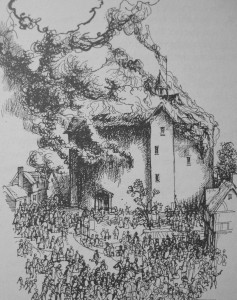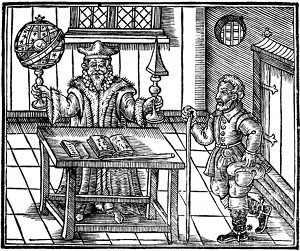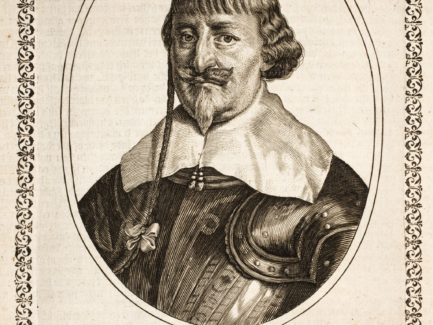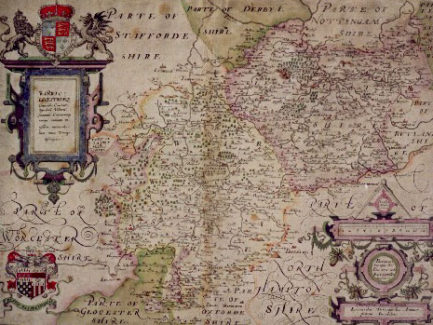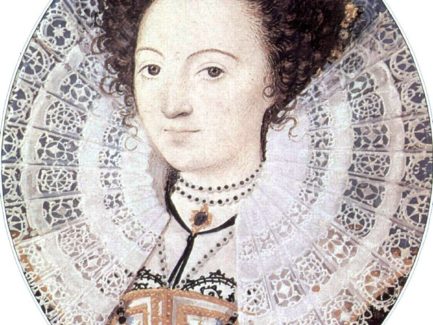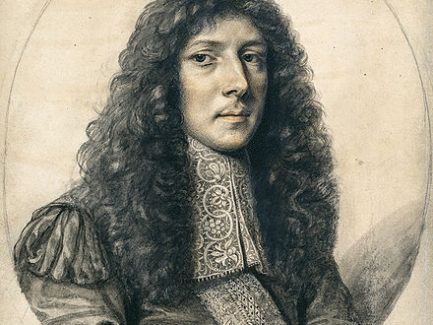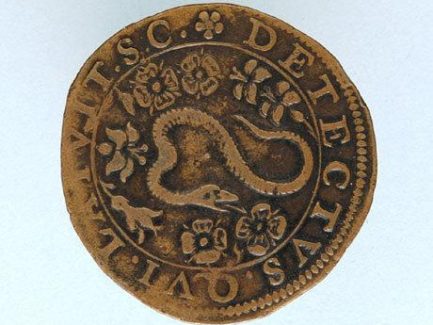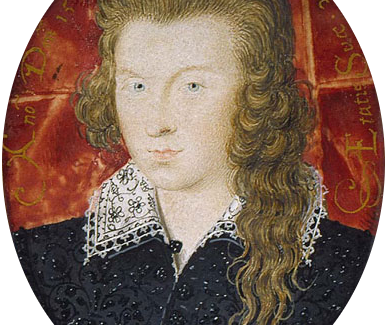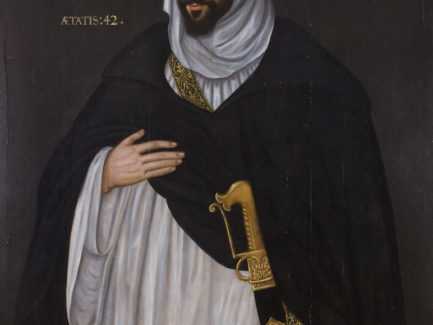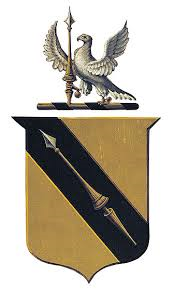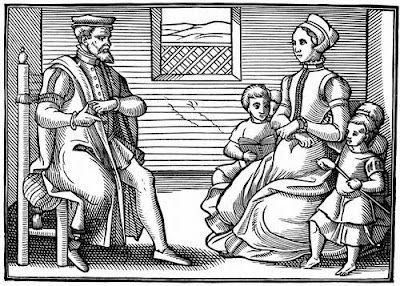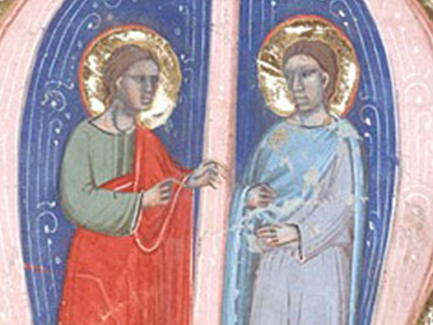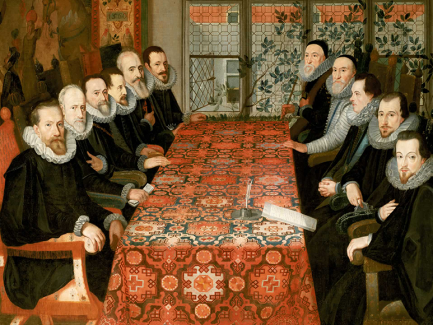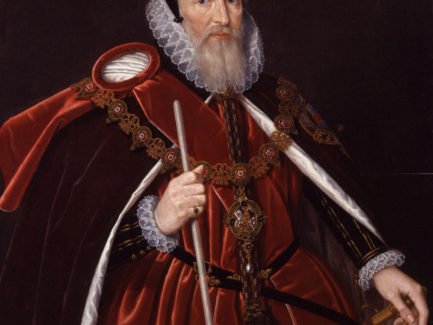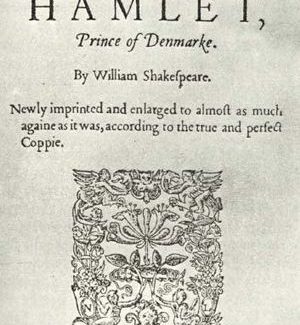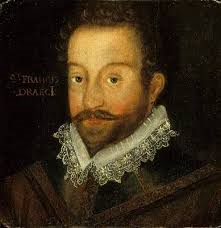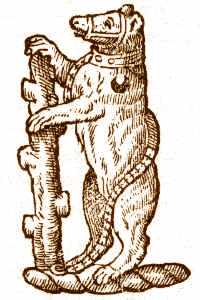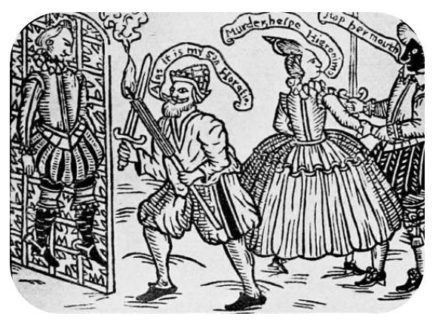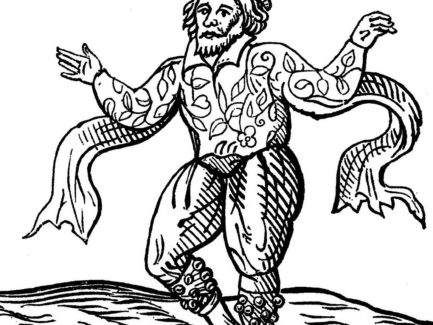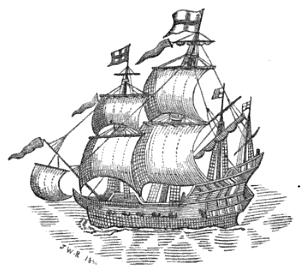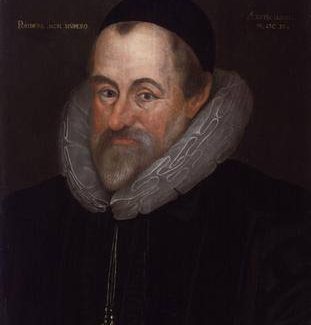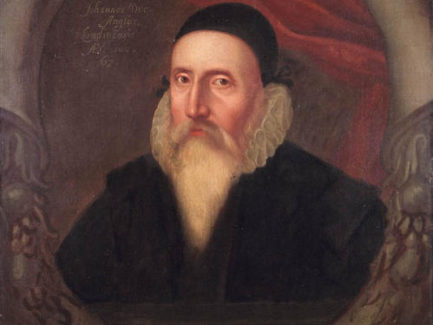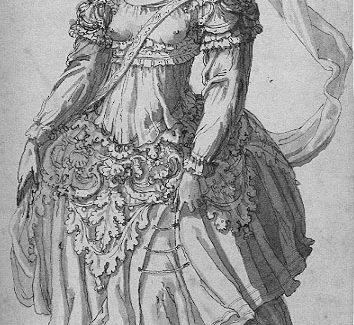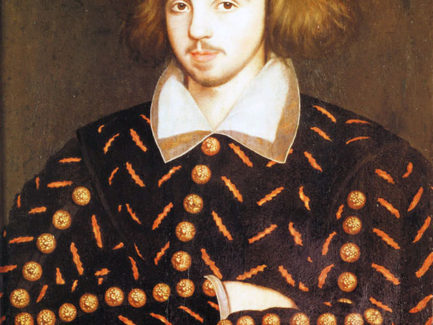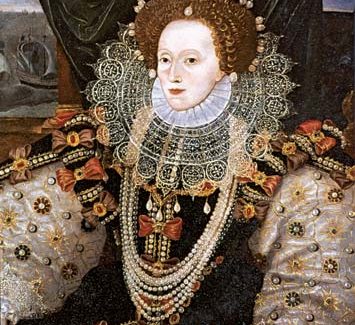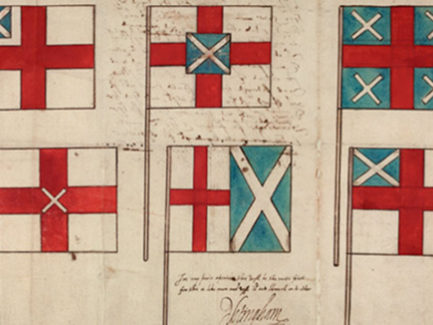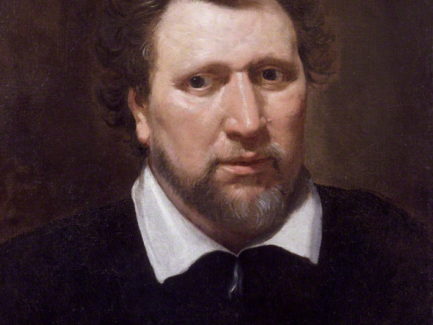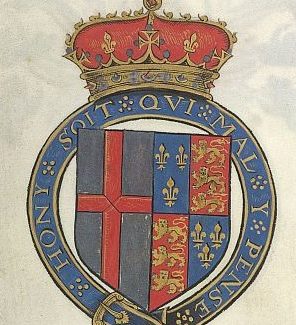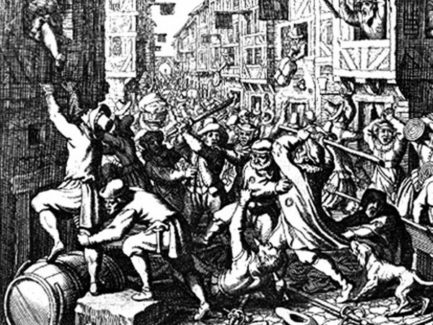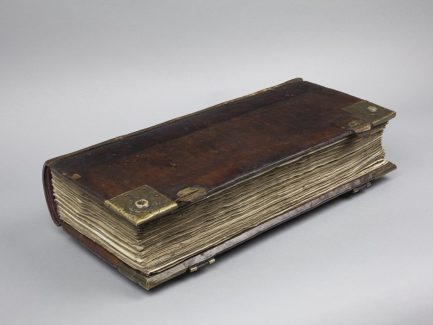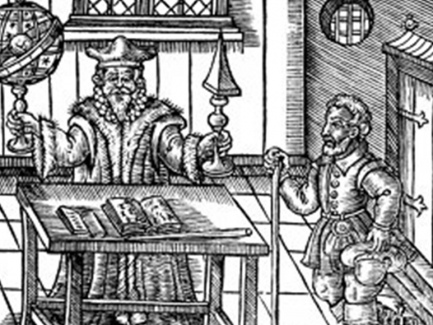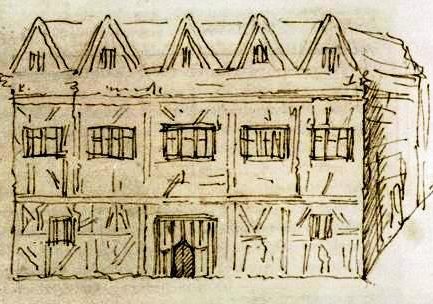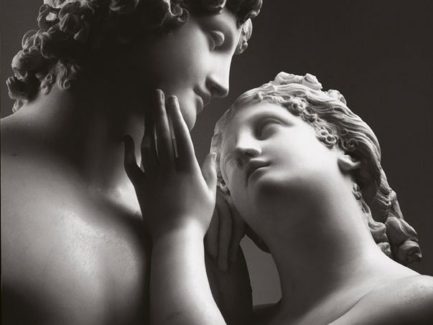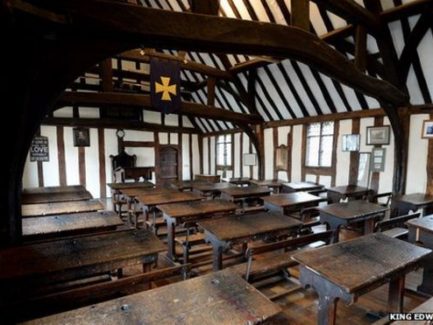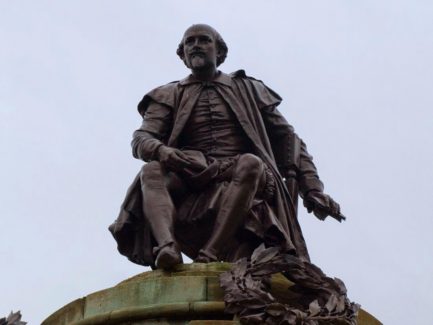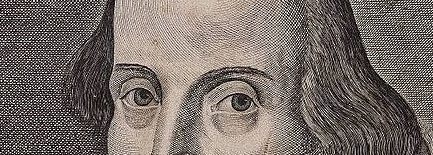Was Shakespeare known as a gentleman in his own lifetime?
In 1602, Shakespeare was described as a gentleman in recognition of the coat  of arms he inherited after his father’s death in 1601. Two drafts of a grant of arms were drawn up for John Shakespeare in October 1596. The drafts describing the coat-of-arms were drawn up by William Dethick, Garter King of Arms. He noted that a previous design of the arms had been drawn up twenty years earlier when John Shakespeare applied for a grant in the 1570s. This first application had been unsuccessful, or it may have been abandoned when John Shakespeare was beset by financial difficulties. The second application, however, was successfully granted in 1596. The coat-of-arms confirmed the Shakespeare family as members of the gentry. It also gave them the right to use the title ‘gentleman’ after their names and to display the arms on their home and belongings.
of arms he inherited after his father’s death in 1601. Two drafts of a grant of arms were drawn up for John Shakespeare in October 1596. The drafts describing the coat-of-arms were drawn up by William Dethick, Garter King of Arms. He noted that a previous design of the arms had been drawn up twenty years earlier when John Shakespeare applied for a grant in the 1570s. This first application had been unsuccessful, or it may have been abandoned when John Shakespeare was beset by financial difficulties. The second application, however, was successfully granted in 1596. The coat-of-arms confirmed the Shakespeare family as members of the gentry. It also gave them the right to use the title ‘gentleman’ after their names and to display the arms on their home and belongings.
The Shakespeare arms included a falcon holding (or shaking) a silver-tipped spear in what was a visual pun on their family name (shakes-spear). The coat-of-arms was a gold shield with a black banner on which was printed a gold spear with a silver tip. The crest on top of the shield was a silver falcon with wings outstretched holding another gold spear with a silver tip. The first draft of the grant of arms describes the arms as:
…gold on a bend sable a spear of the first, the point steeled proper [or argent in the second draft], and for his crest or cognisance, a falcon his wings displayed argent standing on a wreath of his colours supporting a spear gold steeled as aforesaid: set upon a helmet with mantels and tassels.
Another grant of arms was drafted three years later to include greater emphasis on the family of Shakespeare’s mother, Mary Arden. The draft of 1599 authorised the Shakespeare family arms to be quartered with the Arden family arms. The new coat of arms was an attempt to strengthen the Shakespeare family’s connection to gentility based on both Mary Arden’s ancestors, who were part of the landed gentry of Warwickshire, and John Shakespeare’s ancestors, who had served faithfully and valiantly under Henry VII. The motto for their arms was Non sans droit. Translated as ‘not without right’, it was a reference to the heritage of both the Shakespeares and the Ardens.
John and William Shakespeare, in pursuing the title of a gentleman over the course of a few decades, were like other people with social pretentions who were lampooned on the early modern stage. Shakespeare, in Richard III, referred to the vicissitudes of fortune whereby gentlemen were made and un-made:
The world is grown so bad
That wrens make prey where eagles dare not perch.
Since every jack became a gentleman,
There’s many a gentle person made a jack.
(Act 1 Scene 3)
Sogliardo in Ben Jonson’s Every Man Out of His Humour even seems to gently mock Shakespeare and his new coat-of-arms. The clown Sogliardo is ‘so enamoured of the name of a gentleman, that he will have it, though he buys it’. When he finally purchases his own coat of arms, he takes the motto ‘not without mustard’. Sogliardo’s motto not only echoes Shakespeare’s motto, ‘not without right’, it also refers to the gold colours that featured in his arms.
© 2018 Shakespeare’s World
To read more about this topic and other events on this day in Shakespeare’s lifetime, you can see our recommendations for further reading and visit our website to buy Shakespeare’s World App or to follow us on social media.




